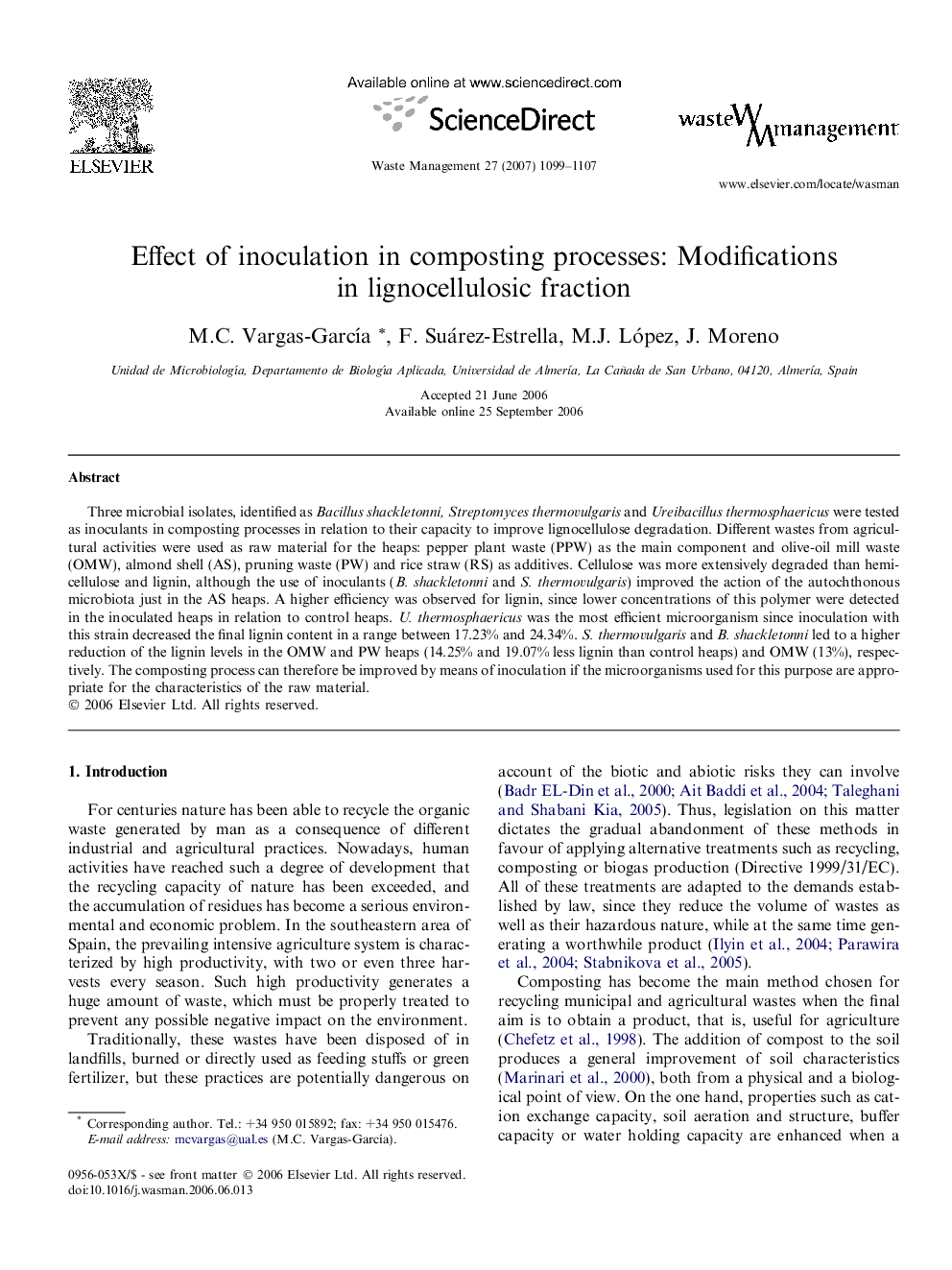| Article ID | Journal | Published Year | Pages | File Type |
|---|---|---|---|---|
| 4474104 | Waste Management | 2007 | 9 Pages |
Three microbial isolates, identified as Bacillus shackletonni, Streptomyces thermovulgaris and Ureibacillus thermosphaericus were tested as inoculants in composting processes in relation to their capacity to improve lignocellulose degradation. Different wastes from agricultural activities were used as raw material for the heaps: pepper plant waste (PPW) as the main component and olive-oil mill waste (OMW), almond shell (AS), pruning waste (PW) and rice straw (RS) as additives. Cellulose was more extensively degraded than hemicellulose and lignin, although the use of inoculants (B. shackletonni and S. thermovulgaris) improved the action of the autochthonous microbiota just in the AS heaps. A higher efficiency was observed for lignin, since lower concentrations of this polymer were detected in the inoculated heaps in relation to control heaps. U. thermosphaericus was the most efficient microorganism since inoculation with this strain decreased the final lignin content in a range between 17.23% and 24.34%. S. thermovulgaris and B. shackletonni led to a higher reduction of the lignin levels in the OMW and PW heaps (14.25% and 19.07% less lignin than control heaps) and OMW (13%), respectively. The composting process can therefore be improved by means of inoculation if the microorganisms used for this purpose are appropriate for the characteristics of the raw material.
